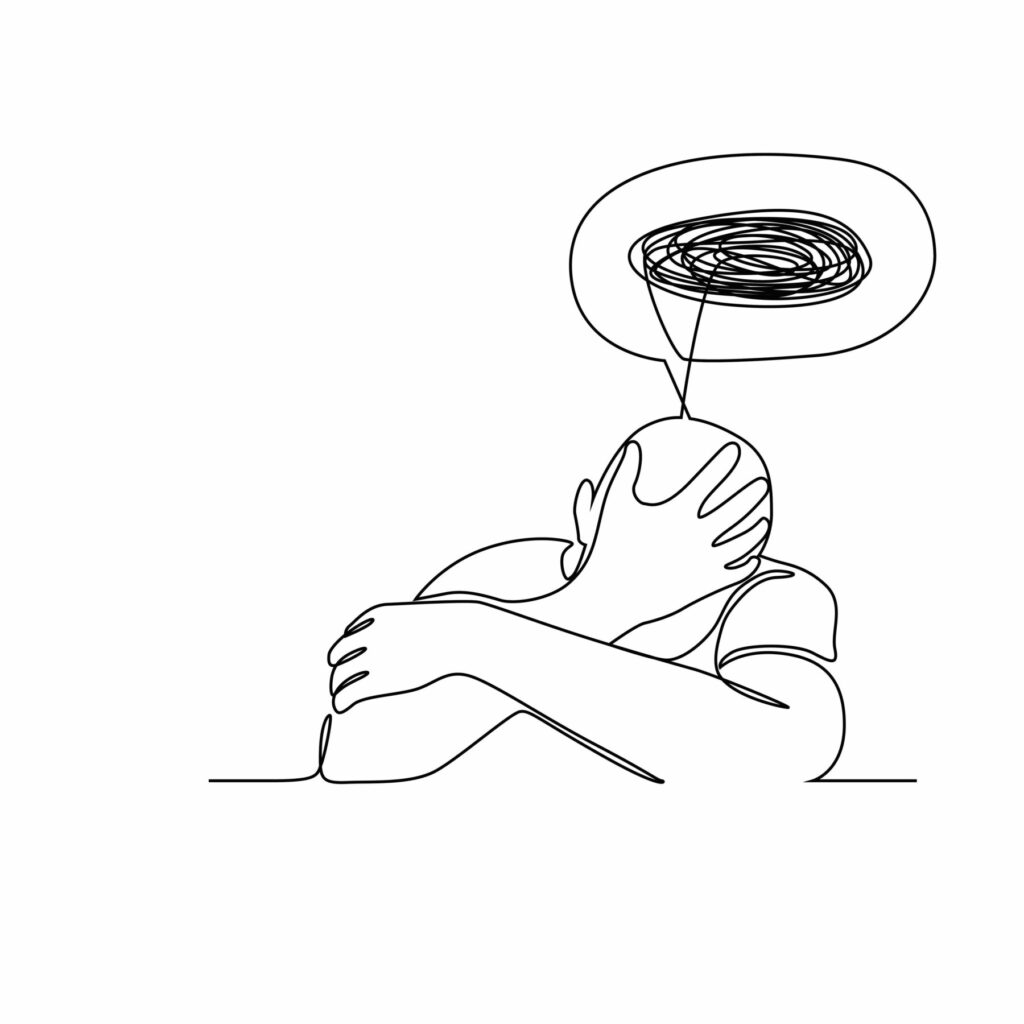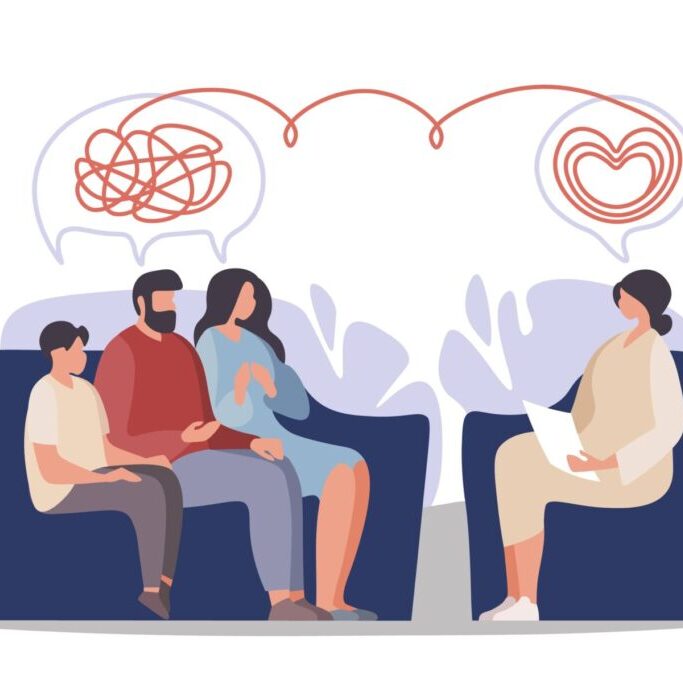Mental Compulsions in OCD

Seeking Certainty: Understanding Mental Compulsions in OCD
While most people are familiar with the rituals and repetitive behaviors that characterize OCD, it is equally important to shed light on the lesser-known symptom of the disorder—mental compulsions. Compulsions refer to repetitive behaviors, actions, or mental rituals that individuals with OCD feel driven to perform in response to obsessions or to prevent negative outcomes. These compulsions are often performed as an attempt to reduce anxiety or distress temporarily. They can be both visible behaviors, such as excessive hand-washing or checking, as well as mental acts. Identifying and recognizing mental compulsions can be challenging since they occur internally. Fortunately, by becoming attuned to one’s thought patterns and emotional responses, individuals can interrupt the vicious cycle of obsessive thoughts and mental compulsions.
The Link Between Obsessions and Mental Compulsions
An obsession, in the context of obsessive-compulsive disorder (OCD), refers to persistent, unwanted, and intrusive thoughts, images, or urges that repeatedly enter a person’s mind. These thoughts are often distressing and are difficult to control or dismiss. Obsessions are typically irrational, alarming, or go against a person’s values or beliefs. However, even if a person sees that a thought is not grounded in logic, these thoughts can feel very important and difficult to ignore. Common obsessions include worry about contamination, morality, or intrusive thoughts about causing harm to others. The power of obsessions lies in their ability to fuel uncertainty, creating an urgent desire for reassurance or resolution.
Individuals with OCD often find themselves caught in a cycle of seeking certainty both internally and through verbal processing. In fact, mental compulsions are commonly overlooked or mistaken for generalized anxiety or worry. When repeated anxious thoughts only seem to worsen by trying to challenge them or talk them through with others, mental compulsions may be the culprit. Examples of mental compulsions include:
- Mental Rituals: Mental rituals involve repetitive and specific thought patterns or actions performed in the mind. Examples include mentally reviewing past events to ensure no mistakes were made, mentally repeating phrases or prayers, or mentally counting or arranging objects in a specific order.
- Mental Checking: Mental checking involves repeatedly reviewing thoughts, memories, or mental images to make sure that something bad hasn’t happened or to ensure that everything is in order. For instance, someone might constantly review their actions in their mind to make sure they didn’t harm anyone or mentally replay conversations to confirm that they didn’t say anything offensive.
- Reassurance Seeking: Reassurance seeking is a mental compulsion where individuals repeatedly seek reassurance, either internally or from others, to alleviate anxiety or doubts. They may seek reassurance about their decisions, relationships, or safety, continuously seeking confirmation and validation to alleviate their fears. This can become a cycle where reassurance-seeking provides temporary relief but leads to a never-ending need for more reassurance.
The Role of Mental Compulsions in OCD
When someone with OCD engages in mental compulsions, it can ultimately make their obsessive thought patterns intensify. This creates a cycle that is very difficult to break. Engaging in compulsive behaviors or mental rituals provides temporary relief from the anxiety and distress caused by obsessions. However, this relief is short-lived, leading to a need for more compulsions. The repetitive nature of compulsions further solidifies the belief that the obsessions are significant and warrant attention. This reinforcement strengthens the association between the obsessions and the need for compulsions, perpetuating the cycle.
Breaking Free from OCD
Breaking free from OCD is a journey towards reclaiming control by learning to tolerate uncertainty. It begins with a commitment to challenge the grip of these compulsions and seek healthier alternatives. The cycle of OCD can be very difficult to interrupt without support, so it’s worth finding a trained therapist in Chicago to help you or your loved one on this journey. By working with a trained therapist, individuals can gain insight into their thought patterns, identify triggers, and learn effective strategies to interrupt the cycle of mental rituals. Here are some ways a therapist might help:
- Exposure and Response Prevention (ERP) is an evidence-based treatment approach for OCD that specifically targets compulsive behaviors, including mental compulsions. Gradual exposure exercises, where individuals face their fears in a controlled and supportive environment, help to weaken the power of obsessions and reduce the reliance on mental compulsions.
- Acceptance and Commitment Therapy (ACT) encourages acceptance of distressing thoughts and feelings, while also promoting commitment to behaviors aligned with one’s values. ACT teaches techniques such as cognitive defusion which helps individuals detach from their thoughts and create distance from their mental compulsions. By reminding themselves that thoughts do not define one’s identity or actions, it becomes easier to view mental compulsions as passing mental moments rather than as necessary or meaningful actions to be performed.
- Mindfulness can also play a crucial role in managing mental compulsions. By developing mindfulness skills, individuals can increase awareness of their thoughts without getting caught up in them. This non-judgmental observation allows for a more detached and accepting stance towards mental compulsions, reducing their significance and impact.
Mental compulsions in OCD may be hidden from view, but their impact on individuals’ lives can be profound. By understanding the nature of mental compulsions, recognizing their signs, and seeking appropriate treatment, individuals can break free from the OCD trap. If you or someone you know is struggling with mental compulsions in Chicago, seeking therapy can be a transformative step towards healing and growth.
OCD doesn’t have to impact your life. Schedule an appointment with an anxiety therapist to help!
This blog is made for informational and educational purposes only. It is not medical advice.
The information in this blog is not intended to (1) replace a one-on-one relationship with a qualified licensed health care provider, (2) create or establish a provider-patient relationship, or (3) create a duty for us to follow up with you.



